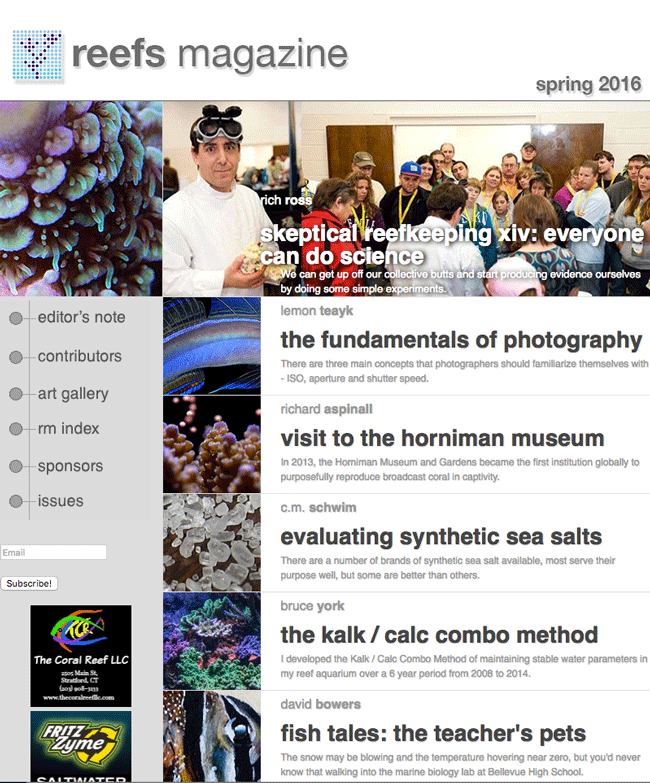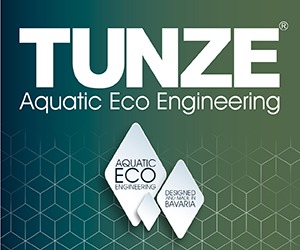Reefs Magazine is proud to present our “actionable” issue. These six articles strive to instruct, inspire, and empower our readers to do something, whether it be directly related to their reef or more broadly toward their personal enrichment, or the enrichment of their communities. In “Skeptical Reefkeeping XIV,” Richard Ross asks hobbyists to become modest scientists themselves. While full-blown, extensive scientific research is beyond the capabilities of most of us, there are still plenty of simple experiments that can be performed at home. The results may not be definitive, but the more data generated, the further we can move from anecdote. C.M. Schwim takes Rich’s suggestions a bit further and points toward more formal experiments that can be undertaken by those with access to appropriate resources and level of expertise. Specifically, he turns his attention to an analysis of synthetic sea salt – a subject of perennial importance to all aquarists. Lemon TYK steps back from his usual taxonomic exploits to focus on the fundamentals of photography as it pertains to aquariums. Whether you are a casual hobbyist, aquarium professional, or industry vendor, in today’s social-media driven world taking good quality photographs is seemingly as important as animal husbandry itself. First time author Bruce York is known to many in the on-line hobbyist community. Here he presents a very detailed, straightforward, step by step guide for using kalkwasser in tandem with a calcium reactor to supplement calcium and alkalinity in a captive reef. Both techniques have been around for decades, yet using them safely and efficiently without complication still eludes many hobbyists. Richard Aspinall visits London’s Horniman Museum to check in with Jamie Craggs and his groundbreaking Project Coral captive spawning experiments. Along the way he stops by a host of other inspiring exhibits housed in this historic natural history museum. Finally, “Fish Tales” highlights the incredible educational work being done by David Bowers and his high school students in Bellevue, Ohio. As hobbyists we know the incredible potential of aquariums as learning tools for students of all ages and interests. How many of us actively unlock this potential? David and educators like him show us some of what is possible. Now go run some experiments, or take some photographs, or go visit a public aquarium. Perhaps now is a good time to revisit your system design. Is there a school near you that you or your local club can partner with? There is lots to do and lots that can be done.
Happy Reefing,
Randy










0 Comments